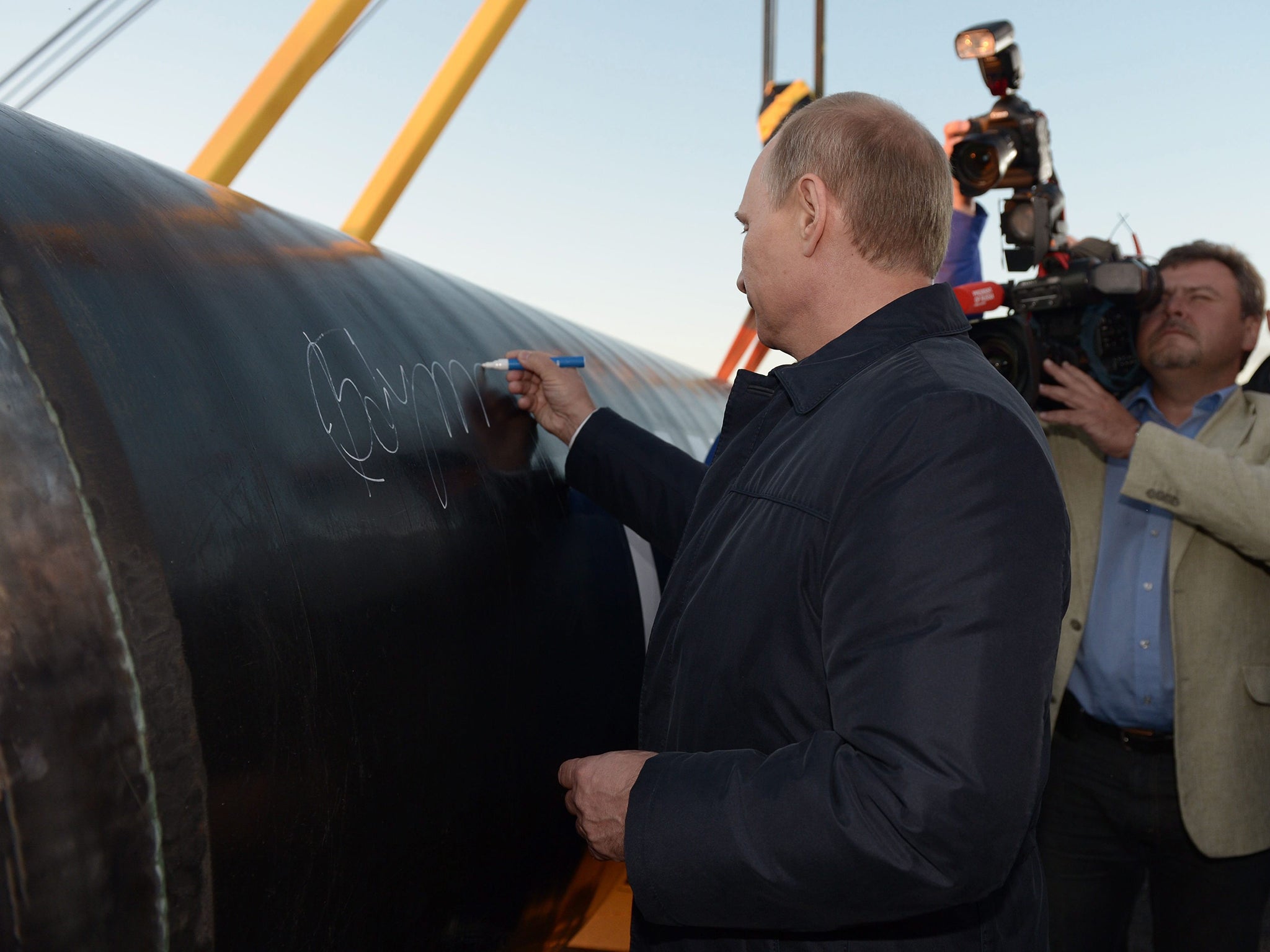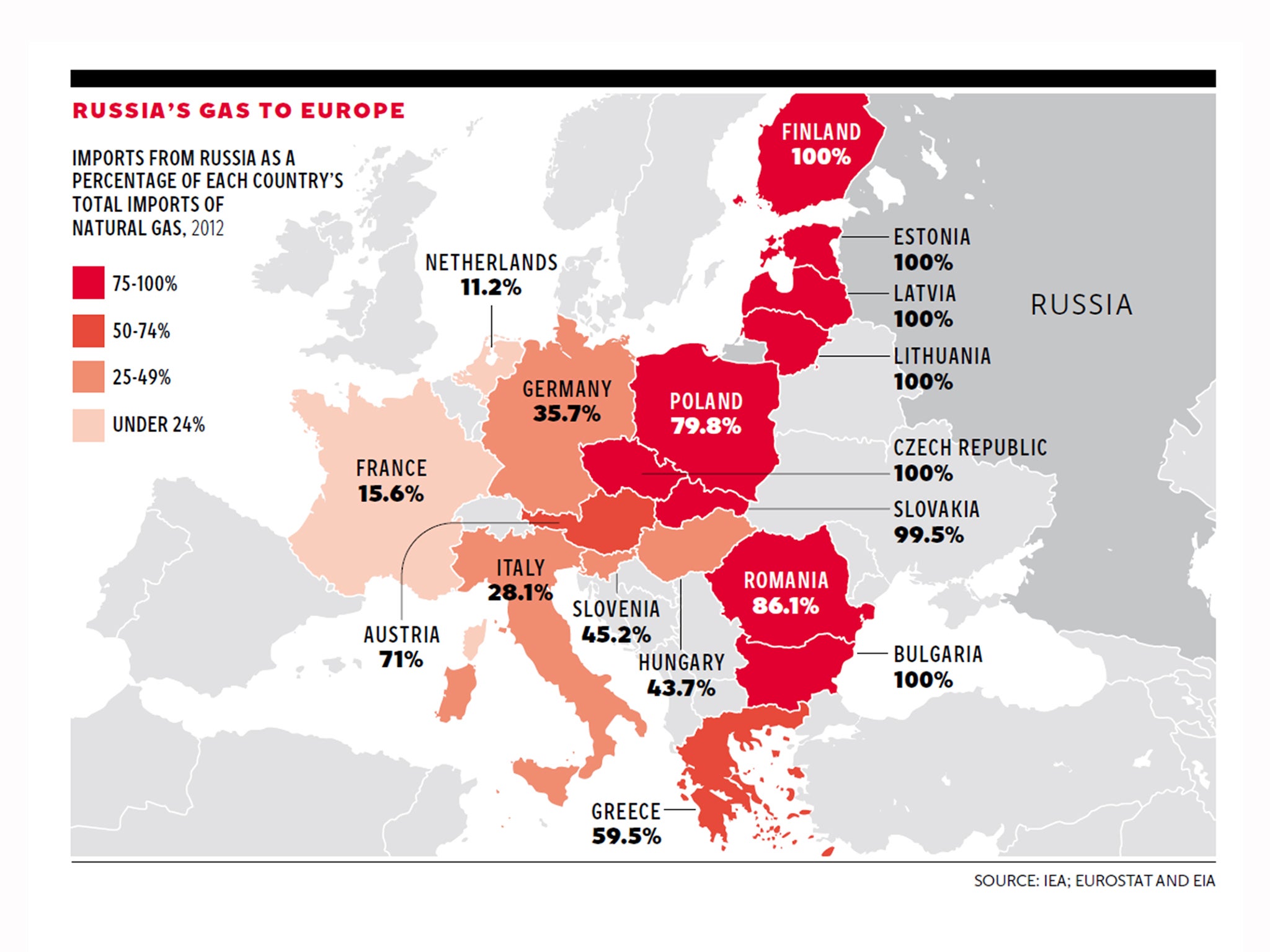Fear over Russian gas switch-off sees EU states stockpile supplies
For the first time ever, Europe’s collective storage tanks are almost full

Your support helps us to tell the story
From reproductive rights to climate change to Big Tech, The Independent is on the ground when the story is developing. Whether it's investigating the financials of Elon Musk's pro-Trump PAC or producing our latest documentary, 'The A Word', which shines a light on the American women fighting for reproductive rights, we know how important it is to parse out the facts from the messaging.
At such a critical moment in US history, we need reporters on the ground. Your donation allows us to keep sending journalists to speak to both sides of the story.
The Independent is trusted by Americans across the entire political spectrum. And unlike many other quality news outlets, we choose not to lock Americans out of our reporting and analysis with paywalls. We believe quality journalism should be available to everyone, paid for by those who can afford it.
Your support makes all the difference.The European Union’s 28 member states have been stockpiling gas in record quantities as they prepare for the possibility that Russia may turn off the tap that provides a vital energy lifeline to the continent. And for the first time ever, Europe’s collective storage tanks are almost full – containing almost 80 billion cubic metres of gas – almost a fifth of the bloc’s yearly useage.
The EU is also drawing up contingency plans that would ban companies from selling tanker cargoes of liquefied natural gas (LNG) outside Europe and order industry to stop using gas. LNG is produced by liquefying the gas to 1/600th of its original size.
Concern about a European energy crisis stems from the dispute between Russia and Ukraine over Crimea and eastern Ukraine. This prompted Moscow to halt gas supplies to Ukraine in June and talks to settle the dispute have since broken down.
“There is something very nasty building and as long as Russia continues to use gas as an instrument in its broader dispute with Ukraine, Europe’s gas supplies will be under threat,” said John Lough, a Russian expert at the Chatham House think-tank.
“Russia uses energy strategy much more effectively than military power. The energy threat is much more powerful and much more dangerous. Russia understands that the world can’t find different sources of energy,” added Alexander Temerko, a Ukrainian-born energy consultant.
Nobody dares predict what will happen in the coming months. But with Russia’s dominance in European gas supply so absolute, the fallout from any significant curtailment will, at the very least, cause major shortages in Eastern Europe and send energy prices rocketing. Meanwhile, a full and prolonged embargo by Russia on gas exports to Europe would send social and economic shockwaves across Europe, experts warn.
Europe imports about a third of its gas from Moscow, of which about half flows through Ukraine. Ukraine has managed to keep its heating on since June by using its reserves, but as winter approaches supplies are running out and the country is starting to turn to Poland and Slovakia for supplies.
Reports claim Russian gas deliveries to Poland dropped by 45 per cent on Wednesday, the third day of decreases.
Russia has this week, by threatening to reduce exports to the EU, to prevent “reverse flows” to Ukraine, meaning Ukraine may be forced to siphon off gas flowing through the country to European destinations. Against this backdrop, analysts fear Russia could halt all supplies to and through the Ukraine as in 2006 and 2009.

Ukraine would be the most affected by Russia withholding gas supplies over the winter, with huge numbers of homes going unheated and industry becoming paralysed, said Mr Lough. Finland is the next most at-risk because it gets all of its gas from Russia and has no other supply options, while Poland, Turkey and Bulgaria are the next most exposed, according to a new report from Cologne University’s Institute of Energy Economics. The UK is among the least vulnerable countries. It gets only a small portion of gas from Russia, produces about half what it consumes from the North Sea, is well served by gas pipelines from Holland, Belgium and Norway and has the necessary infrastructure to import large quantities of LNG.
Although a full-scale Russian embargo on gas exports is still regarded as unlikely, experts agree that it could happen if the tit-for-tat sanctions battle between Russia and the EU continues to escalate. A gas embargo starting in November and running for several months would spell disaster for much of Europe, especially if it coincided with cold weather, the Institute of Energy Economics report warned.
Join our commenting forum
Join thought-provoking conversations, follow other Independent readers and see their replies
Comments